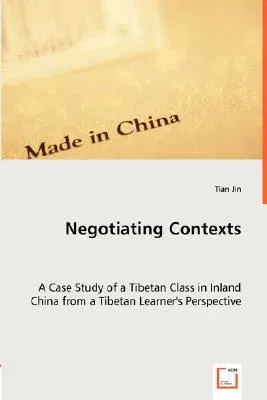Tian Jin
(Author)Negotiating Contexts -A Case Study of a Tibetan Class in Inland China from a Tibetan Learner's PerspectivePaperback, 18 March 2008

Qty
1
Turbo
Ships in 2 - 3 days
In Stock
Free Delivery
Cash on Delivery
15 Days
Free Returns
Secure Checkout
Print Length
216 pages
Language
English
Publisher
VDM Verlag Dr. Mueller E.K.
Date Published
18 Mar 2008
ISBN-10
3836473534
ISBN-13
9783836473538
Description
Product Details
Author:
Book Format:
Paperback
Country of Origin:
US
Date Published:
18 March 2008
Dimensions:
22.86 x
15.24 x
1.17 cm
ISBN-10:
3836473534
ISBN-13:
9783836473538
Language:
English
Location:
Saarbrucken
Pages:
216
Publisher:
Weight:
294.83 gm

